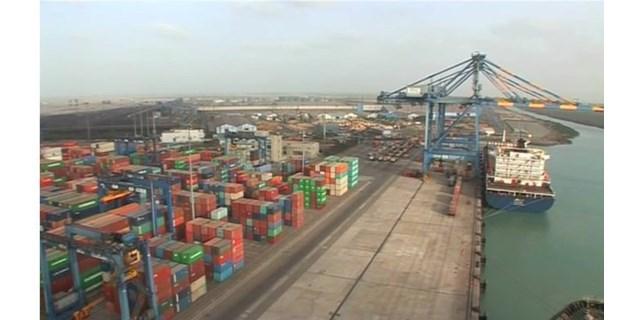
Impact investing generated around $100 mn of capital in India last year, according to Rockefeller Foundation
Mumbai: Impact investing, in which money is used to deliver social benefits alongside financial returns, generated around $100 million (around Rs.547 crore today) of capital in India last year and is set to grow at an annual pace of 30%, according to research by the Rockefeller Foundation.
“Almost all of it is international capital and this makes India the second largest market for impact investing after the US with $500 million worth of investments in 2012,” said Manas Ratha, director, Dasra Social Impact and portfolio services.
Key points from the Rockefeller Foundation presentation to Dasra, which works with philanthropists and social entrepreneurs in channelling money into socially relevant and financially viable investment avenues, were shared with Mint on Tuesday during the Dasra Philanthropy Week. The presentation was made at the Impact Investing Forum the Rockefeller Foundation held in Bangalore on 16-17 January.
“We have trillions of rupees in India in stock markets, fixed deposits, etc.,” Ratha said. “We are now encouraging wealth managers to take this (impact investing) as a new category of assets to their clients and consider it as a part of portfolio with other financial instruments like stocks, bonds.”
Impact investing is being hailed around the world as an emerging asset class with financial instruments like “social impact bonds” delivering returns of as much as 13% in some cases, said Charly Kleissner, founder of international impact investor network Toniic Llc.
“Impact investing will continue to be attractive to investors with a lot of money and who are interested in creating a social impact,” said Sachin Rudra, India director at venture fund Acumen Fund Advisory Services India Pvt. Ltd.
Sometime in the future, it has the potential to emerge as an investment category on its own on the lines of venture capital and private equity, Rudra said.
But the government will need to put in place regulations for such financial instruments, said Kleissner. Until then, most foreign investors putting money in social enterprises in India have to take the equity route because they aren’t allowed to take the debt route, Kleissner said. Foreign investors can’t buy bonds sold by social enterprises.
Impact investors from overseas are already seeking local partners in India.
Kleissner, who has been investing in social enterprises in India for the past eight years, said: “It is important to work with local investors and businesses in order to be more effective on the ground and locals know the culture well and don’t fall into a cultural trap.”
Domestic investors that have shown interest in impact investing include some early stage funds such as Unilazer Ventures Pvt. Ltd set up by UTV group founder Ronnie Screwvala, family offices of wealthy individuals such as Vallabh Bhanshali, chairman of Enam Financial Consultants Pvt. Ltd, and corporate groups like the Wadia group.
“Unilazer, which is a for-profit organization, has been actively considering investments in businesses which provide significant growth opportunity in the domestic markets,” Amit Banka, managing director, Unilazer Ventures, said in an email.
Unilazer will seek to invest “in businesses that are largely driven by need gaps within social infrastructure, unorganized plays and tough ground realities at implementation level” and make for a “great India consumption story”, Banka said.
EdelGive Foundation, a strategic philanthropic arm of the Edelweiss Group, is considering impact investments.
Currently, the foundation invests money without any expectations of returns. Looking at the potential of impact investments in India and worldwide, “in a couple of years from now, we will be more open to investing in sectors like education and livelihood”, said Divya Srinath, manager, EdelGive Foundation, on the sidelines of Dasra Philanthropy Week 2013.
Domestic investors have been encouraged by the success stories of companies such as Vaatsalya Hospital Network that builds primary and secondary care hospitals in semi-urban and rural areas, and Husk Power Systems, a rural empowerment enterprise.
“When we started Vaatsalya in 2004, impact investing was just about getting started,” said Ashwin Naik, the co-founder and CEO of Vaatsalya Healthcare. “For us and many like us impact funds are wind beneath our wings which helped us to scale.”
Early investors in such companies made a profit while exiting. Investors are placing greater emphasis on accurately measuring both the social and financial impact created by social enterprises.
“Foreign investors also have impact measurement metrics which are not present in India. Now, Indian philanthropists, too, are asking for impact measurement metrics,” said Aditi Shrivastava, head of Intellecap Impact Investment Network (Intellectual Capital Advisory Services Pvt. Ltd). Intellecap’s investment banking team has facilitated raising funds of $300 million for social enterprises in the last eight years.
Early stage investor Aavishkaar Venture Management Services Pvt. Ltd, which is closing a $100 million fund, all from foreign investors, in this calendar year for impact investing in India, is developing metrics to measure impact.
“We have a specialist on board who measures impact in many terms. We are trying to develop global metrics that can be adopted as a rating tool by investment funds. It is expected to be ready by end of this year,” said Vinod Kenny, chief financial officer, Aavishkaar. The metrics will focus on key parameters such as risk, innovation, benefit and sustainability.
